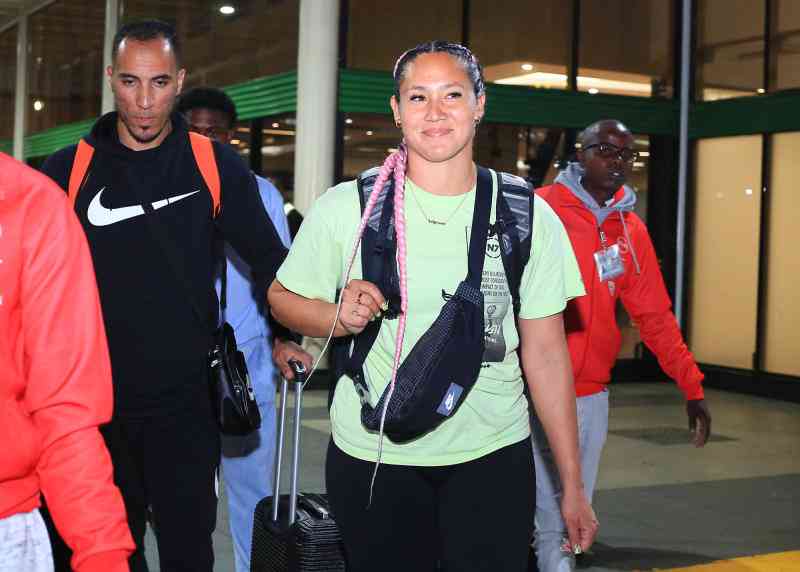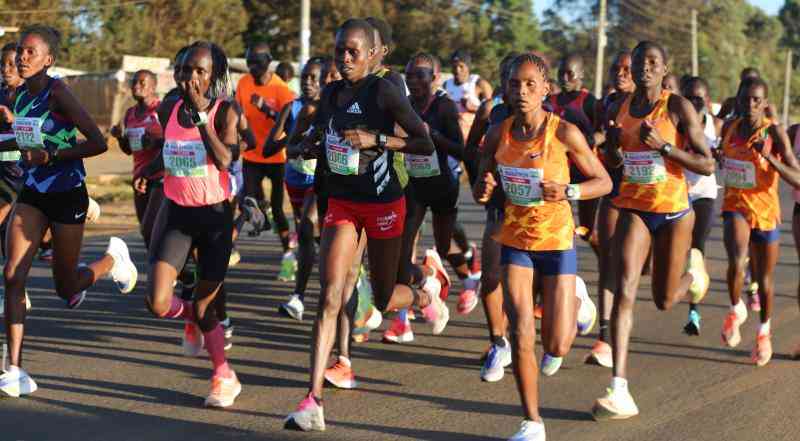It has taken Kenya nearly five decades to gain the upper hand over its neighbour and greatest athletics rival Ethiopia, but the winning formula was staring Kenyan track officials in the face all along.
The London Games will be the next battleground between the two giants of middle and long-distance running, who have tussled for east African track dominance since the 1960s.
Kenya finally toppled Ethiopia from its perch in the medals table by going against the grain to focus on female athletes in a male-dominated track team.
It was only then that the number of gold, silver and bronze medals around Kenyan necks went through the roof.
“Kenya was shooting itself in the foot initially by not including women,” said Paul Ereng, Kenya’s 800m Olympic gold medal winner at the 1988 Seoul Games.
Ereng, a cross-country head coach at the University of Texas, said Kenya would often select three male athletes to compete for an Olympic event but only take one woman.
“Our societies are male dominated. It is said women belong to the house and all that but I think we are disturbing those ideals,” Yobes Ondieki, a 1991 world champion in 5,000m, told Reuters in Eldoret.
“We are giving women a chance and women are proving themselves,” Ondieki said, looking at his old friend Ereng, who nodded. “You can say it’s like an Arab Spring for women.”
After Ethiopia narrowly pipped Kenya in the medals table at the 2004 Athens Games, Kenyan athletics officials realised the majority of Ethiopian medals at Athens were won by women and decided to bring women’s athletics to the high level of men.
“We got more sponsorships (for women), we trained more coaches to focus on the women...,” said Peter Angwenyi, a spokesman for Athletics Kenya.
The new strategy started to pay off when 18-year-old Pamela Jelimo won the 800 metres at the 2008 Beijing Games to become the first Kenyan woman to win an Olympic gold medal. Jelimo wants even more financial investment in women, insisting: “We still have a long way to go.”
Ethiopia heads to London hoping to improve on the Beijing Games, where Kenya won twice as many medals, eager to prove its athletics factory can still produce great champions. But its preparations appear to have run into trouble.
Ethiopia experimented with a more conventional training approach after the Beijing Games, allowing athletes to report to camps only ahead of major competitions, but went back to stricter methods after the country’s runners flopped in two subsequent world championships.
Daegu 2011 represented a steep downfall for Ethiopia, a country used to outpacing its rivals in the 5,000m, 10,000m and marathon — it only won a single gold medal and four bronze. Kenya, on the other hand, scooped seven gold, six silver and four bronze medals.
“What happened in Berlin (in 2009) and Daegu is a reflection of that (conventional training approach),” said Yilma.
I’m not saying they don’t train at all in those circumstances, but the concentration levels and commitment won’t be the same when based on their own.”
One of the biggest concerns for Ethiopia is the lack of talent coming through the ranks to replace the likes of the great Haile Gebrselassie, while Kenya is reporting one of its greatest crops ever.
“Kenya had an absolute and huge reservoir of athletes training. It was only a matter of time before the Kenyans would wear the Ethiopians down,” said Brother Colm O’Connell.
— Reuters
 The Standard Group Plc is a multi-media organization with investments in media
platforms spanning newspaper print operations, television, radio broadcasting,
digital and online services. The Standard Group is recognized as a leading
multi-media house in Kenya with a key influence in matters of national and
international interest.
The Standard Group Plc is a multi-media organization with investments in media
platforms spanning newspaper print operations, television, radio broadcasting,
digital and online services. The Standard Group is recognized as a leading
multi-media house in Kenya with a key influence in matters of national and
international interest.
 The Standard Group Plc is a multi-media organization with investments in media
platforms spanning newspaper print operations, television, radio broadcasting,
digital and online services. The Standard Group is recognized as a leading
multi-media house in Kenya with a key influence in matters of national and
international interest.
The Standard Group Plc is a multi-media organization with investments in media
platforms spanning newspaper print operations, television, radio broadcasting,
digital and online services. The Standard Group is recognized as a leading
multi-media house in Kenya with a key influence in matters of national and
international interest.






